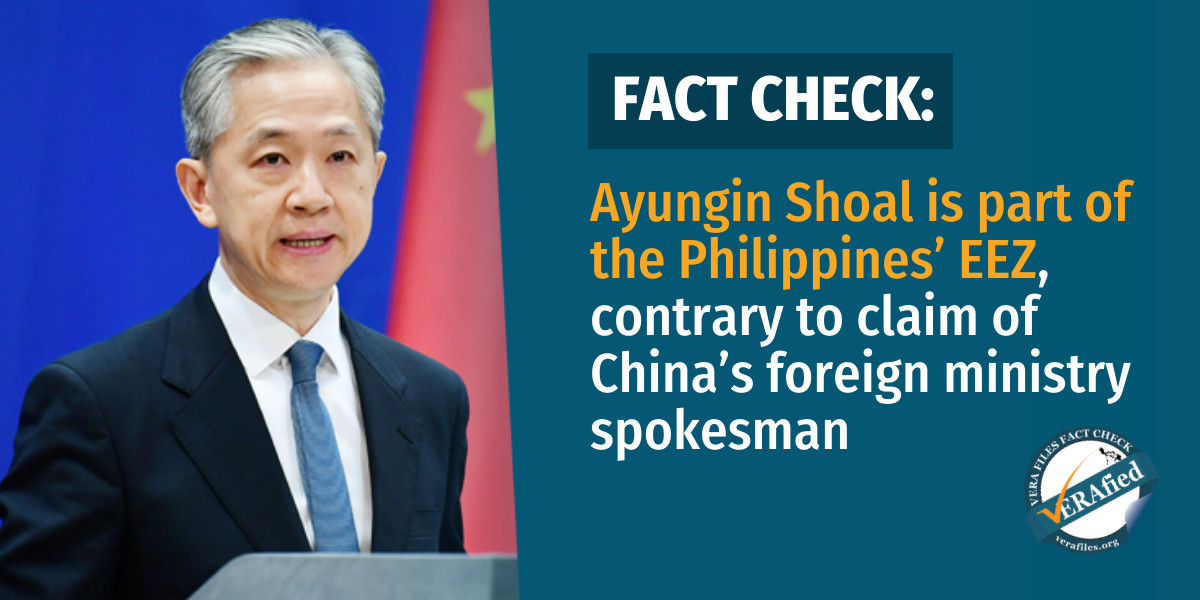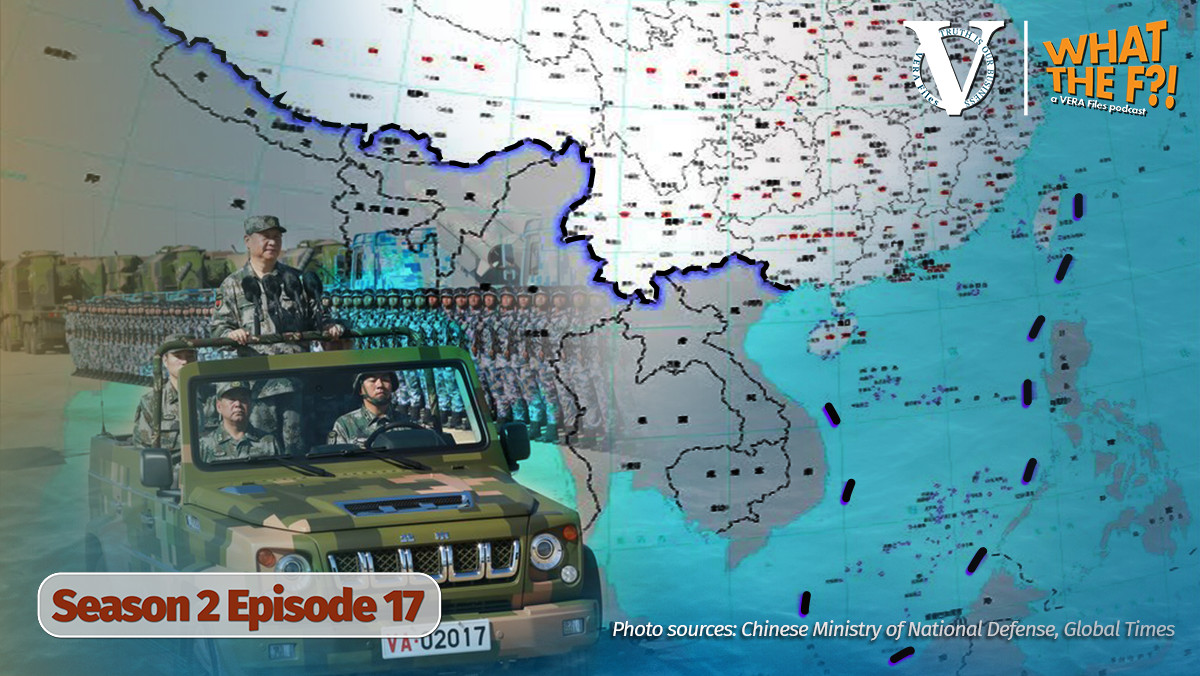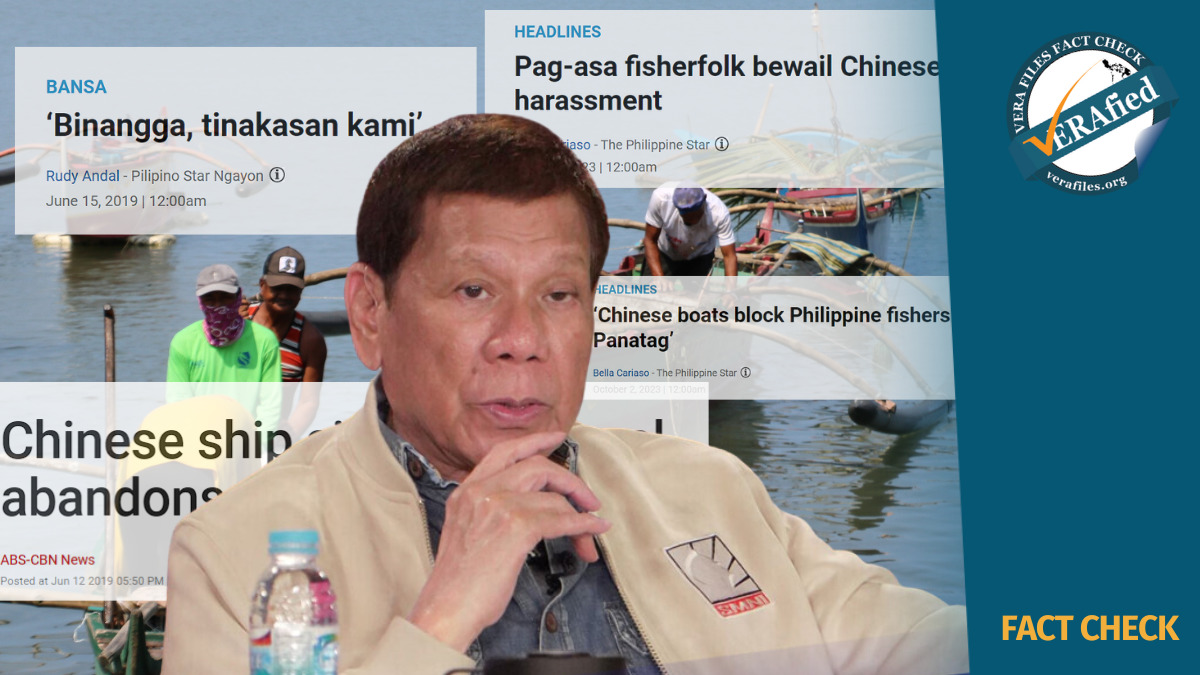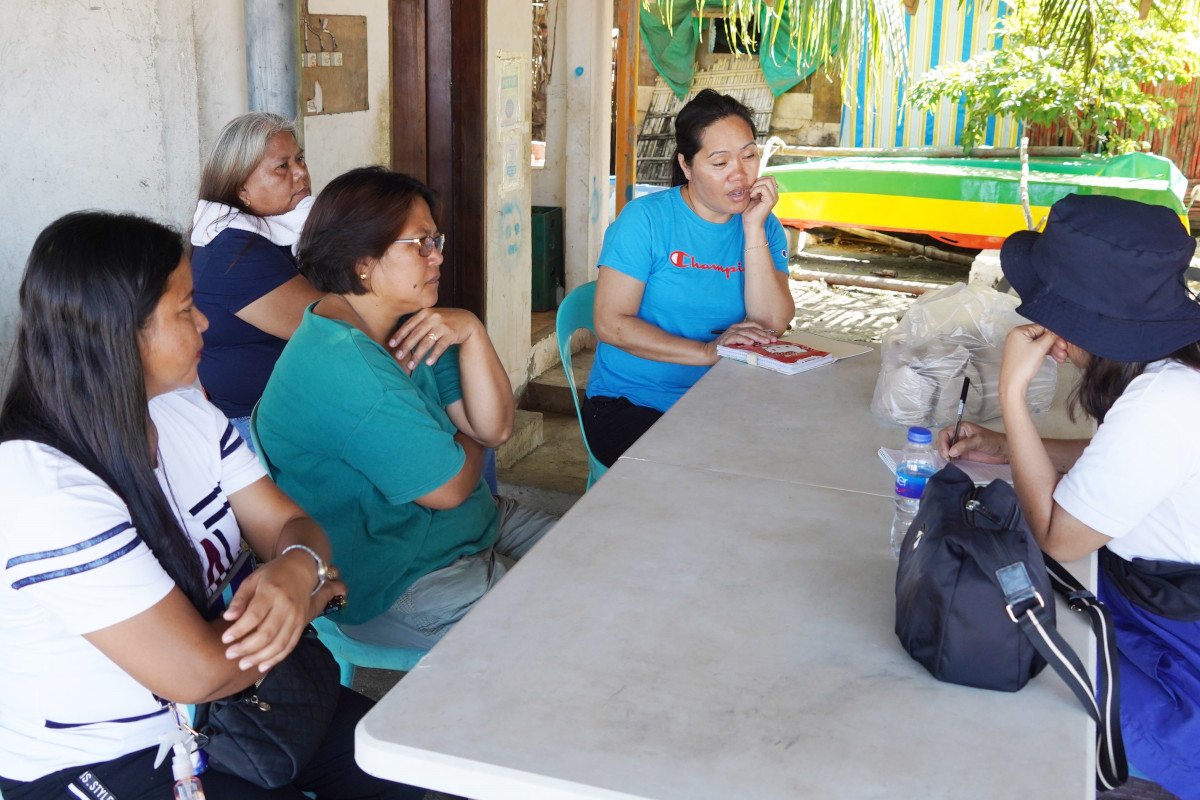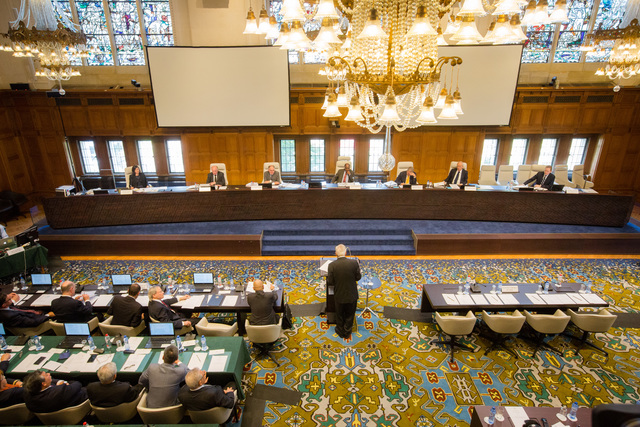
The arbitral tribunal in The Hague, Netherlands hears the case of the Philippines against China’s claims in the South China Sea. Photo courtesy of PCA
In a recent briefing with his defense team, President Rodrigo Duterte denounced the reported move of the U.S. to build depots and unload arms in the Philippines. He said “the missiles of China are pointed at American expeditions” here, and it is the kind of war the country cannot participate in.
He then went on to remind his Chinese counterpart Xi Jinping of the international ruling on the maritime dispute in the West Philippine Sea (or South China Sea).
STATEMENT
“Then sabihin ko talaga sa kanya and I have to tell them: ‘You know, Mr. President, we have to talk. You claim it as yours, we claim it as ours. We have to talk about this because that is equally ours. It’s a matter of host claim but it’s stronger. But I think it’s ours because that has passed the scrutiny of a judicial body, the International Court of Justice.”
(Source: Press conference with defense and security team, Malacañang Palace, Jan. 29, 2017, watch from 17:03 – 17:35)
FACT
Was it the International Court of Justice (ICJ) that issued the landmark ruling that invalidated China’s historic rights to the South China Sea?
No. The Permanent Court of Arbitration (PCA) did.
And, no, they’re not one the same. But, yes, they both occupy offices in the same building, the Peace Palace, in The Hague in the Netherlands.
Just how do they differ?
BACKSTORY
The PCA is an intergovernmental organization established in 1899.
Contrary to what media have been reporting, it is not a “court” as it functions as an administrative body. It facilitates arbitration, fact-finding and dispute resolution among its 121 member states, the Philippines and China including.
It ensures peaceful resolution of disputes involving treaties and agreements such as the UN Convention on the Law of the Sea (Unclos), under which the Philippine case was lodged.
Once arbitration begins, an arbitral tribunal is created. Then a set of judges or arbitrators, chosen by the member states, is appointed.
In 2013, when the Philippine government filed its complaint against China, a five-member panel was appointed led by Ghanian-born judge Thomas A. Mensah.
Under the tribunal’s Rules of Procedure, the PCA was tasked to maintain an archive of the proceedings, assist in appointing experts, publish information about the arbitration, issue press releases and organize hearings at the Peace Palace, among others.
When the tribunal ruled in favor of the Philippines on July 12, 2016, China rejected it.
One Chinese professor on international maritime law called out the media for repeatedly using “UN tribunal” or “UN-backed tribunal,” confusing the PCA with the UN’s International Court of Justice.
The PCA is not a member of the UN, and was merely granted an observer status in 1993.
The ICJ, meanwhile, is the principal judicial organ of the UN. Established in 1945, its role is to settle, in accordance with international law, legal disputes submitted to it by states.
Unlike the PCA, the ICJ is composed of 15 judges elected for terms of office of nine years by the United Nations General Assembly.
Right after the tribunal ruling, China’s Foreign Ministry spokesperson Lu Kang used this fact in rejecting the decision.
She said China, a founding member of the UN, will always abide by the principles of the UN in upholding the international rule of law and settling disputes peacefully.
Experts have recommended filing the maritime row before the ICJ, which has a history of settling disputes like the South China Sea case.
At the ICJ, both parties have to agree to submit themselves to its jurisdiction. China opposed the internationalization of the case, saying it’s a bilateral issue that must be solved between China and the Philippines.
At the PCA, on the other hand, the participation of both parties is not required. In the case filed by the Philippines against China, the latter did not participate.
Sources:
Press release on the South China Sea arbitration
Arbitral court not a UN agency
South China Sea dispute: 8 things to know about the PCA, the world’s oldest tribunal
Ex-ICJ judge: PCA and ICJ are different
Backgrounder: International Court of Justice totally distinct from Permanent Court of Arbitration
Permanent Court of Arbitration
International Court of Justice
United Nations Convention on the Law of the Sea


